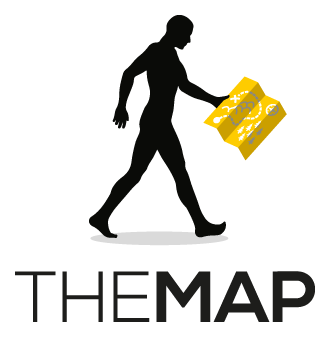Unpacking Mental Fitness
/The majority of us understand the concept of becoming physically fitter and invest in the process in different ways. Gym memberships, equipment, and nutritional supplements. People spend a great deal of time and money on services and products that support this area of their life.
Reports suggest the market size, measured by revenue, of the gyms and fitness Centres industry, was £1.75 billion in 2022. It’s forecast to keep growing further in 2023.
The correlation between physical fitness and physical health is also well understood. When physically fitter our propensity for suffering from injury decreases while physical performance levels increase.
However, when it comes to the concept of mental fitness and its correlation with mental health you may be less clear. The aim of this article is to provide clarity, as well as introduce a potential training approach.
I’ll begin by offering the following definition:
Mental fitness - The level of mental preparedness one has at any given point to navigate challenges and perform at an optimal level. To think and feel clearly. To make decisions efficiently and effectively.
Key points:
Part of being mentally fit is preparedness - There is a proactive component. We can train.
At any given point, our mental fitness and level of response will fluctuate - Like physical fitness, mental fitness isn’t a one-and-done deal. It is a practice. It requires consistency. An ongoing effort to maintain.
The way we navigate challenges and respond is directly influenced by our level of mental fitness - This may be about keeping our head above water through adversity. This may be about thriving and seizing the opportunity.
Four key areas impact our level of mental fitness in different ways:
Fundamentals - Our sleep, diet, physical exercise, and rest levels.
Environment - The setting in which we are living or operating. Are we being given appropriate tools to do our job? How supportive is our physical home or workspace setup concerning our needs and objectives?
Culture - The ‘way of life’ embodied within the system we are living or operating in. That system could be an organisation, family, or even a whole country. Ideals such as values, behaviours, and laws are all present here.
Mindset - The established set of attitudes we hold. These attitudes are informed by a wide range of nature and nurture-related factors.
Three supporting observations:
Each of these areas will impact us in terms of mental fitness levels however to what degree will be on an individual-by-individual basis. Some of us require more sleep than others. However, we all require a certain amount of sleep in order to fully mentally function.
The degree and way these areas impact our mental fitness will shift over time depending on age and resilience levels.
These areas are interlinked and in relationship with one another.
When considering a mental fitness training approach, it is the area of mindset where I would like to focus.
‘We can try to be more mentally fit or we can train to be mentally fit…the choice is up to us.’
A mindset fitness training approach that has gained great traction in recent years is Positive Intelligence (PQ). Positive Intelligence is the science and practice of developing mastery over our mindset with respect to attitude. With a particular focus on how much of a negative or positive viewpoint we’re seeing things, and in turn, making decisions from.
The approach encourages us to claim better control over the steering wheel that is our mind. With improved self-command, we become able to respond to life’s challenges with a more positive rather than negative mindset.
Intentionally making this pivot has been scientifically proven to:
Improve work performance and response in key moments.
Improve relationships and levels of calmness.
Reduce the propensity for toxic stress.
In essence, we become more mentally fit.
The positive intelligence training programme is a mindset fitness mindset boot camp. The programme gives us insights, motivation, and structure to practice and develop our PQ muscles for 15 minutes every day and it combines weekly video sessions with daily app-guided practices to boost your three core mental fitness muscles.
Further details concerning the programme found here: Mental Fitness - Positive Intelligence 8-week Program
So here we are. A definition for mental fitness, reflection points, key areas, and a training approach to consider.
*Original article published on the Life Coach Directory, 16/01/2023 (Source - https://www.lifecoach-directory.org.uk/memberarticles/unpacking-mental-fitness)
If you’d like to get in touch with me regarding this blog article or want to find out more about my coaching and mental fitness training services contact me directly via the button below:



